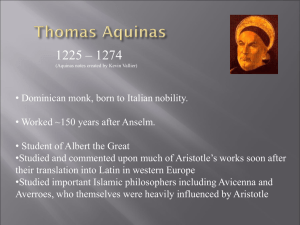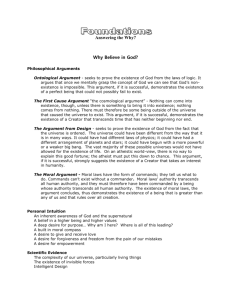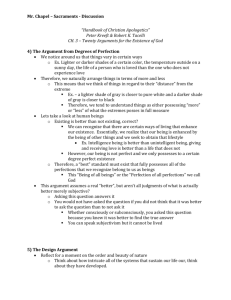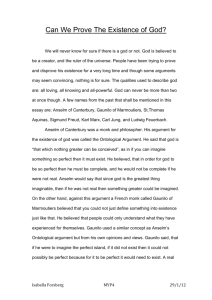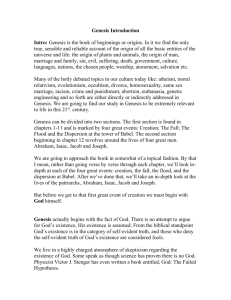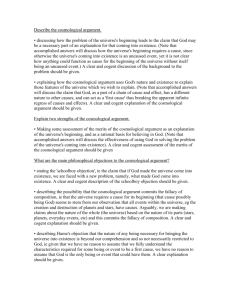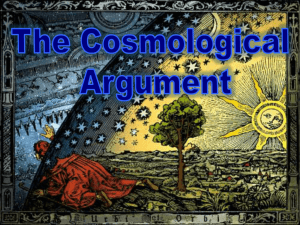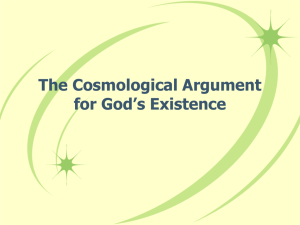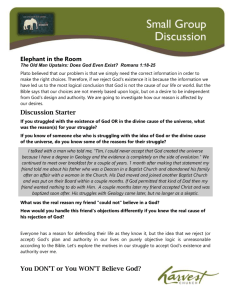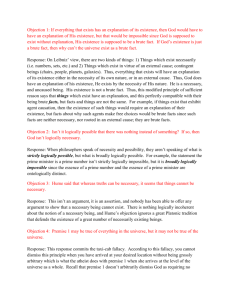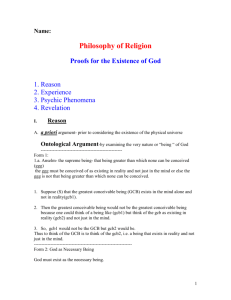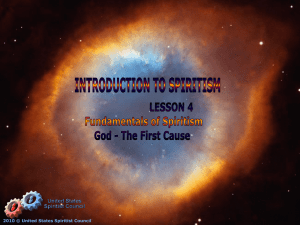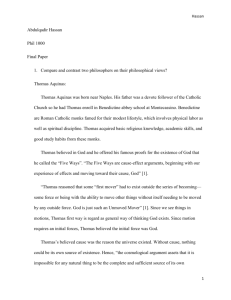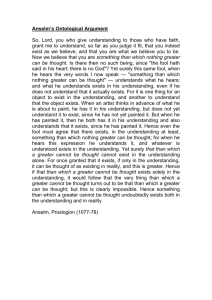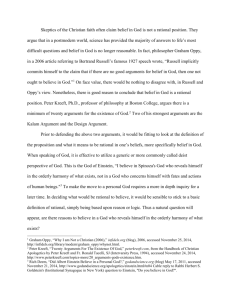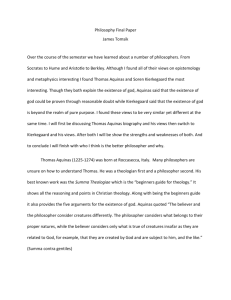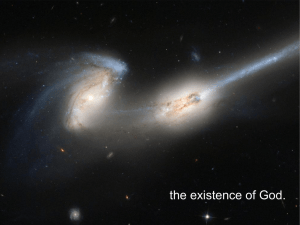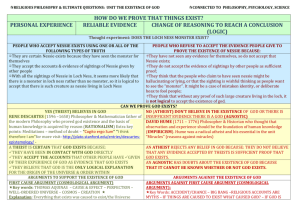The meaning of life
advertisement
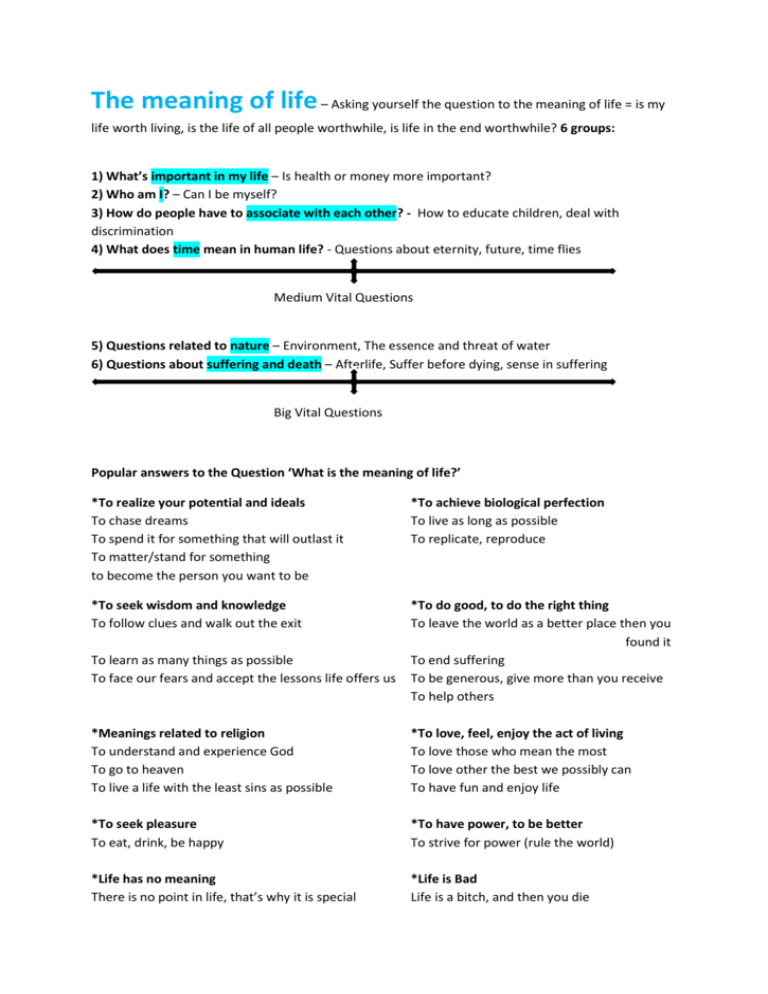
The meaning of life – Asking yourself the question to the meaning of life = is my life worth living, is the life of all people worthwhile, is life in the end worthwhile? 6 groups: 1) What’s important in my life – Is health or money more important? 2) Who am I? – Can I be myself? 3) How do people have to associate with each other? - How to educate children, deal with discrimination 4) What does time mean in human life? - Questions about eternity, future, time flies Medium Vital Questions 5) Questions related to nature – Environment, The essence and threat of water 6) Questions about suffering and death – Afterlife, Suffer before dying, sense in suffering Big Vital Questions Popular answers to the Question ‘What is the meaning of life?’ *To realize your potential and ideals To chase dreams To spend it for something that will outlast it To matter/stand for something to become the person you want to be *To achieve biological perfection To live as long as possible To replicate, reproduce *To seek wisdom and knowledge To follow clues and walk out the exit *To do good, to do the right thing To leave the world as a better place then you found it To end suffering To be generous, give more than you receive To help others To learn as many things as possible To face our fears and accept the lessons life offers us *Meanings related to religion To understand and experience God To go to heaven To live a life with the least sins as possible *To love, feel, enjoy the act of living To love those who mean the most To love other the best we possibly can To have fun and enjoy life *To seek pleasure To eat, drink, be happy *To have power, to be better To strive for power (rule the world) *Life has no meaning There is no point in life, that’s why it is special *Life is Bad Life is a bitch, and then you die Why do people ask themselves question about life and death? - Look further ahead than just today - What to do with nonsense, like pointless violence - The need for meaning When do we ask ourselves these questions? - When life is no longer accepted: unexpected suffering, (traumatic) experiences Norms – Unwritten laws, telling you what’s right to do (ethics). Values – Ideas and Principles, when you follow a norm, you have certain values * There is a big difference in norms and values in certain countries. Especially when it comes to: Eating, Dealing with people and Behavior in public. * Norms and Values can change over time Difference norms and values: Norms: Social behaviors that people in a society are expected to follow Play a role in building up of values in the mind of an individual Are imposed from outside Values: Our beliefs what is good, right or wrong. A set of beliefs an individual has to guide his behavior Made inside the mind of an individual Love as the basis for a Christian Living *Christians believe that Jesus was the only person to fulfill the ideal of ‘the love of your fellow human is more important than building up your own riches or possessions on earth’. *The golden rule: Love your neighbour as you love yourself. How do world religions give meaning to life? Judaism: * ‘It’s what you do that counts’ – People should be judged on the way they live their faith * Jews try to live up to the ‘thirteen principles of faith’. Each principle begins with the words: ‘I believe with complete faith that…’ *Jewish life is life in community: The Jewish prayer book uses ‘we’ instead of ‘I’ *Most of the Jewish believe that the meaning of life is to do at least one noble act: *Donating an organ *Preparing your loved ones to survive your death *Asking forgiveness *Changing one negative or selfish pattern Christianity *Christians recognize Jesus as the Son of God who was sent to save mankind from death and sin *Christians believe in justification by faith – through their believe in Jesus, the Christians have a right relationship with God. *The biggest sin is to turn away from God *Christians believe that many spiritual experiences give them an idea about ‘eternal life’ *Saint is the word to refer to a Christian who has lived a good and holy life on earth, and with whom miracles are claimed to have been associated after their death Islam *Muslims believe in the fact that Allah decided everything, good or bad *Muslims believe in predestination and in life after death *they prepare for a day of judgment *Muslims have to share their wealth *they believe life on earth has no meaning without divine justice being applied *The five pillars of Islam help Muslims put their faith into action: These are five obligations that every Muslim must fulfill in order to live a good and responsible life according to Islam - Shahadah = declaration of faith - Salat = ritual prayer 5 times a day - Zakat = giving a fixed proportion to charity - Swam = fasting - Hajj = pilgrimage to Mecca Arguments for God’s Existence The ontological argument – This argument seeks to prove the existence of God from the laws of logic alone. It argues that once we mentally grasp the concept of God, we can see that God’s nonexistence is impossible. The first cause / cosmological argument – This argument seeks to prove the existence of God from the fact that the universe exists. It came into existence, and since nothing can come to existence it must have been created (by God) The Argument form design/teleological – The argument from design seeks to prove the existence of god from the fact the universe is ordered. The universe could have been different from the way that it is now. The vast majority of these possible universes would not have allowed for the existence of life, so we are very fortunate indeed to have a universe that does. The Moral argument – This argument seeks to prove the existence of a perfect being that created the universe, has authority over it, and takes an interest in humanity. Condensed versions 1. Ontological – It is possible to imagine a perfect being. Such a being couldn’t be perfect unless its essence included existence. Objection: You can’t define or imagine a thing into existence. 2. Causal – Everything must have a cause, so there must have been a first cause. Objection It can be that the universe is the only thing that doesn’t have a cause. 3. Design – Animals, plants etc. show clear signs of being designed for specific matters, therefore they must be designed and created. Objection The evolution theory 4. Experiential – A very large number of people claim to have personal religious experiences of God. Objection: We can’t assume that everything imagined in mental experiences is actually true. 5. Pragmatic (Moral) – Human societies require ethics to survive. They are more effectively enforced if people fear God and hell. Objection: The usefulness of a belief does not prove its truth. Francis of Assisi Francis of Assisi was the founder of the Order of Friars Minor (Franciscans). He was born in Assisi in 1181, and died on the 3rd of October 1226. He restored several ruined churches and he found the order of the Friars Minor and the Order of the Poor Dames. He always helped the poor and he was well-known for his love of nature and environment. He was given the title Saint 2 years after his death by the pope Gregory IX. And every year, on the 4th of October, St Francis’ feast day is observed. Which god do you want to prove? The unknown 1. Answers to the unknown 2. Something > nothing 3. The awe inspiring 4. Source of meaning The mover A presence 5. Created universe 9. Sense of union/love 6. Sees and knows everything 10. Sense of nourishment 7. Controls everything 11. Sense of continuity 8. The matrix of existence A community bond 12. Supports community 13. Supports morality 14. Supports identity A miracle worker 15. Heals illness 16. Provides prosperity 17. Protects from disaster A Judge 18. Wants to be worshipped 19. Benefits obeyers 20. Punishes disobeyers 21. Decides about afterlife


